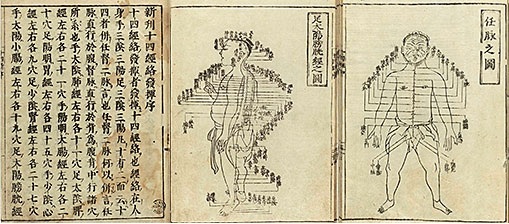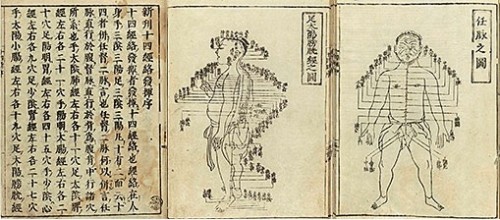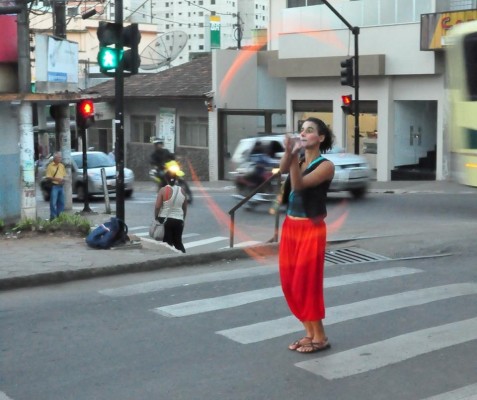During the past few days, reports have been printed in the Brazilian press about a nationwide judicial decision which limits the right for non-doctors to practice acupuncture. The news journal “Estado de Minas” announced: “Regional Federal Court of the 1st region prohibits the use of acupuncture by non-doctor health professionals.” This was a cause for controversy, being informed by the media as if it were a definitive resolution, when in fact there are still various legal proceedings ahead in the nation’s superior courts.
Before getting into the sensationalist and incomplete way of addressing this issue, I would like to clarify a few important points that were omitted from the information publicly announced.
Acupuncture is one of the therapeutic resources of Traditional Chinese Medicine, TCM. It is based on very different theories than what is taught in western medicine universities, the reason for which the diagnostics and treatment are also done in very different ways.
While western medicine only treats the body part where the symptoms of a disease are manifest, in Chinese medicine the symptoms are treated in accordance with the entire body, mind and spirit as a whole, where every disease is attributed to an unbalance in the flow of vital energy through the body.
Without wanting to delve too deeply into theories, it should be made very clear that these are different sciences, for which, the fact that a person has graduated from western medicine does not guarantee that this person will be a good acupuncturist, although certain knowledge attained in their field may very well assist in this practice; for example, anatomic knowledge.
Now, it strikes me that the debate over this issue is limited only to the Brazilian reality, without considering the existence of other important references, being that acupuncture and TCM are widely used around the world today. In other words, this debate has already taken place in other latitudes, making it wise to expand the horizon and inform ourselves accordingly.
UNESCO a short while ago declared acupuncture as a World Intangible Cultural Heritage, but meanwhile the doctors of Brazil have been fighting in court since 2001 for it to even be considered a medical specialization. Someone should let them know that this year the World Health Organization, WHO, made a survey about alternative medicines which show that in only two countries, Saudi Arabia and Austria, acupuncture is restricted to doctors. In the greater majority of countries around the world, every individual with the appropriate training can practice it.
The Health Ministry of Brazil follows the orientations given by WHO ever since Brazil became part of this organization. It seems very strange then the fact that doctors have “forgotten” the orientations laid down by WHO regarding recommended basic acupuncture training. There is an official paper which was advertised in 1999 called “Guidelines on Basic Training and Safety in Acupuncture,” where it explains, among other things, the timetables recommended for doctors and non-doctors.
Well, if the Brazilian doctors want to hold the exclusive rights to acupuncture, then they should make a formal complaint before WHO, which arrived at different conclusions than the demands made by Brazil’s Federal Council of Medicine. In other words, they would have to claim that the health ministries of the rest of the countries that follow such orientations are wrong, and of course explain the reasoning behind their conclusion: that only doctors officially trained in western medicine have the capacity to administer correct diagnostics with TCM theoretical basis, and that only they can practice acupuncture, which I as a mere student of acupuncture humbly find it ridicules and almost funny, for I repeat; they are two therapeutic procedures and systems of knowledge totally distinct from one another.
For the time being, there does not exist any Federal Law prohibiting the practice of acupuncture from those who have adequate training, and thus any citizen can freely pursue this profession, in accordance with the Brazilian Constitution, article 22, paragraph XVI “The Union has the exclusive power to legislate on: (…) the organization of the national employment system and conditions for the practice of professions,” and in article 5, paragraph XIII – “no one shall be deprived of any rights by reason of religious belief or philosophical or political conviction, unless he invokes it to exempt himself from a legal obligation required of all and refuses to perform an alternative obligation established by law.”
Apparently the true motives behind these legal proceedings are far from medical ones and yes economic and commercial. In other words, this issue is not about public health, but about corporate interests, market reserve. The most important thing when passing a law to regulate this issue is to guarantee that the population obtains the greatest possible benefit from acupuncture, the creation of good quality courses that allow for the training of competent professionals, establishing a system of exams and issuing licenses to guarantee the competence of the people who are enabled, therefore preventing the practice of non-qualified persons.
There is already a shortage of doctors in the country’s hospitals and health posts. Imagine how difficult it would be for the population, especially for the ones living in the interior of the country or low-income families, to have access to an acupuncture treatment if it were carried out exclusively by doctors, drastically reducing the amount of available professionals in clinics, hospitals, health posts and private practices. Common sense and the references coming from outside of Brazil tell us that passing a law to satisfy a corporate marketing whim would be downright absurd, with negative repercussions to Brazil’s public health, especially for those seeking alternative options to conventional health treatments.
Here is the link to the WHO article in Spanish for whoever is interested:
http://apps.who.int/medicinedocs/pdf/s4932s/s4932s.pdf
There is no greater mistake than following desire;
There is no greater disaster than forgetting contentment;
There is no greater sickness than seeking attainment;
But one who is content to satisfy his needs
Finds that contentment endures.
TaoDeChing – Lao Tze, Chapter 46
Related Articles










